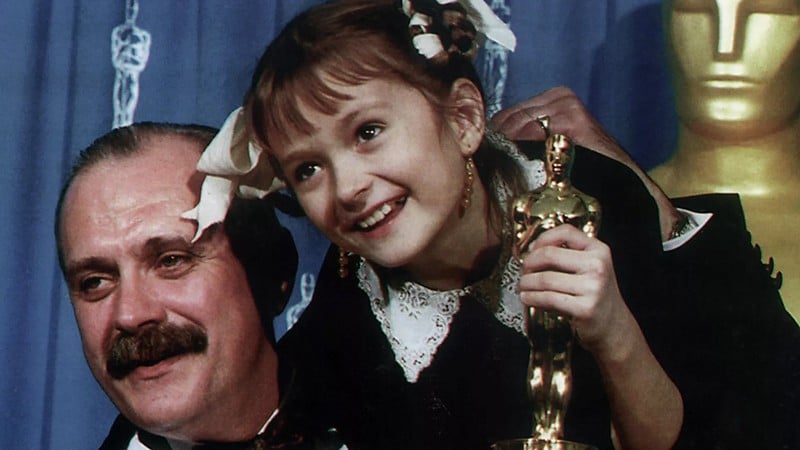
He is one of the figures in Russian culture whose work not only reflects the times but also shapes them in many ways. Nikita Mikhalkov is a People's Artist of the USSR (formerly) and a Hero of Labor of the Russian Federation.
He has won the Russian State Prize three times and is the owner of many international awards and titles. Nikita Mikhalkov is also familiar to Vietnamese audiences in the former Soviet Union through famous films such as “Station for Two” and “The Cruel Sonata” adapted from the work “Dowry” by Alexander Ostrovsky.
On the occasion of his recent 80th birthday, Russian President Putin personally awarded Nikita Mikhalkov the Order of St. Andrew the First. He received this award for his contributions to the development of Russian culture and cinema.
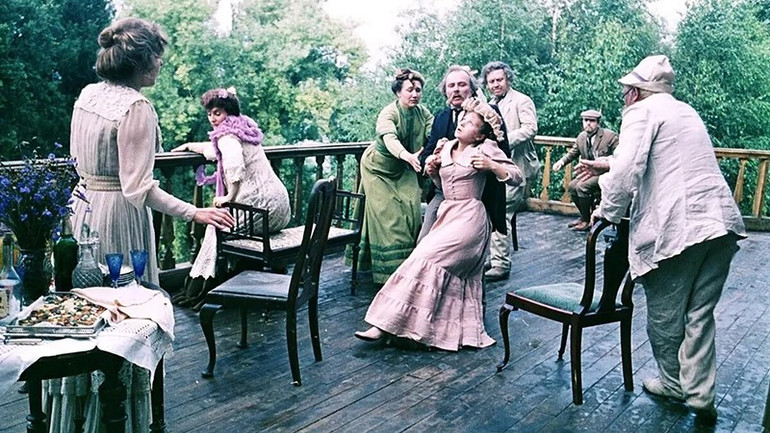
His debut film, "A Quiet Day at the End of the War" (1970), shot at Mosfilm, was a modest but confident statement of his main creative theme - memory and the value of human life in every period of history.
Four years later, his next film, "A Stranger Among Strangers, a Stranger Within Himself" (1974), literally broke all genre conventions, blending Western literature, fable and drama. Each scene of the film was so powerful in its visual power and energy that it became clear that a unique director had appeared in Russian cinema.
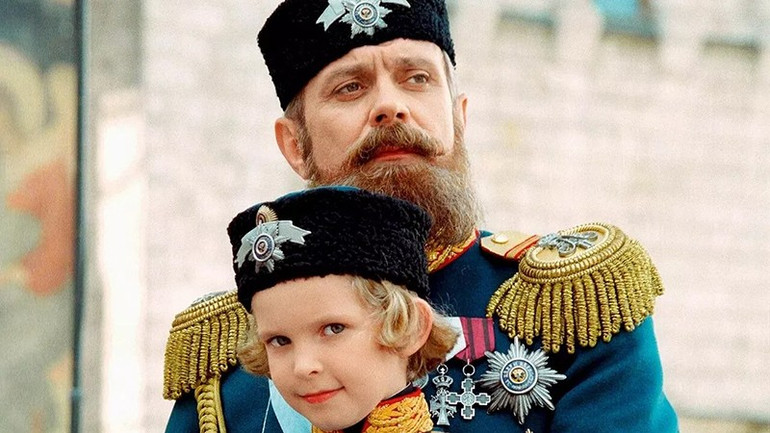
"Slave of Love" (1975) established Mikhalkov as a master of artistic style, ironically and melancholy reflecting on the fate of cinema art in the vortex of history.
His next film, "Unfinished Piano Piece" (1977), is a benchmark for "Chekhovian cinema", in which the director created on screen a dense, vivid atmosphere of a bygone era, where every pause, every look had more power than words.
In the film "Five Evenings" (1978), based on the play by Alexander Volodin, Mikhalkov established himself as a master of psychological cinema. This film, with its intimacy, deep eye contact dialogues and excellent combination with actors (Lyudmila Gurchenko and Stanislav Lyubshin), has become a standard of Russian cinema.
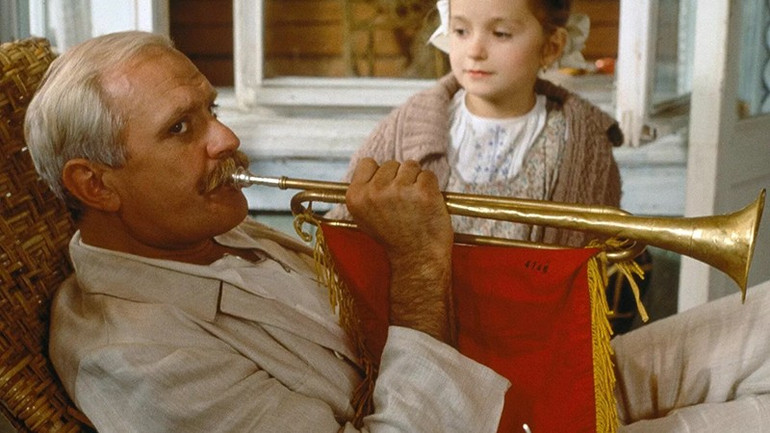
The film is not only a story about war, but also contains its echoes in the human soul, about happiness found again, and the silent courage of ordinary people.
In his work "Some Days in the Life of II Oblomov" (1979), Mikhalkov achieved the almost impossible: he found an equivalent to the exquisite literary material in Goncharov's novel, creating a reflection on the beauty of laziness and the tragedy of living without will.
In the tragicomedy "Breast Love" (1981), Mikhalkov, as a director, created a profound image of a simple Russian woman, played by Nonna Mordyukova, and as an actor, he delivered one of his most memorable cameo roles. This cameo, performed with Mikhalkov's characteristic charm, irony and precision, became a masterpiece of acting, confirming his unique talent for transformation, even in a short period of time on screen.
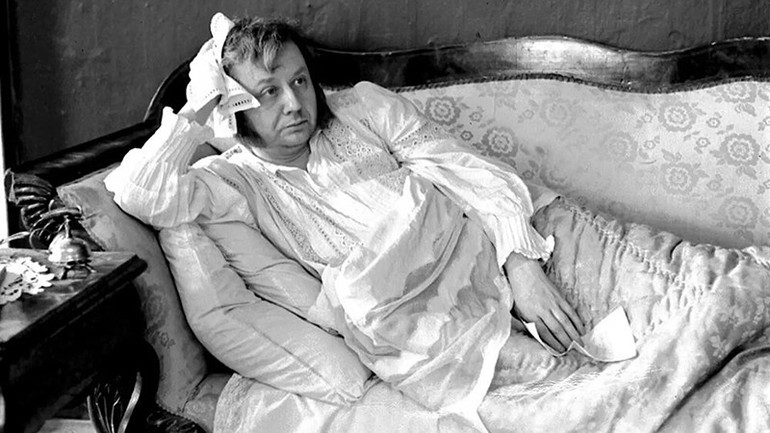
Nikita Mikhalkov's acting is remarkable for its richness and versatility. He can play charismatic romantic protagonists and poignant, broken dramatic characters with equal success. His talent is a rare blend of powerful masculine energy, subtle intellectual irony and deep, almost Chekhovian psychological nuance.
Consider the brooding Nikolai Triletsky in "Unfinished Piano Piece", the dashing gang leader Brylov in "A Stranger Among Strangers", the witty oilman Alexei Utyuzhanin in "Sibiriada", or the charming yet cruel and cynical Paratov in "A Cruel Sonata". Each of his roles is a complete portrait, portrayed with absolute precision and inner depth.
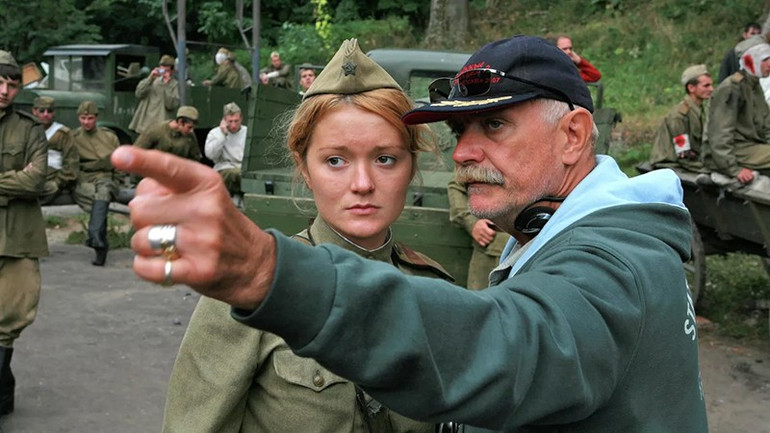
The film "No Witness" (1983) also deserves special mention - a brilliant piece of directing and acting, staged in real time in an apartment.
Based on the dialogue of just two characters (Irina Kupchenko and Mikhail Ulyanov), the film became a model of the psychological drama genre, where the camera captures the smallest emotional nuances. It affirmed Mikhalkov's mastery of both grand epic and prosaic art.
Since 1987, Nikita Mikhalkov has been producing films under the TriTe Studio brand - an association of Soviet and Russian film creation and production founded by him and like-minded colleagues.
The 1994 epic "Burnt by the Sun" is often considered the pinnacle of Nikita Mikhalkov's career, his greatest success.
This film is a profound philosophical statement of the director, a tragic fresco of how a great era, breaking destinies, cruelly destroying the lives of different people.
Winning the Oscar and the Grand Prix at the Cannes Film Festival was not only a personal victory for Nikita Mikhalkov, but also a victory for the new Russian cinema, proving its competitiveness on the international stage.

For Russian cinema, Nikita Mikhalkov's films are a treasure trove, the pinnacle of professionalism and artistic style. He continues the tradition of great Russian psychological cinema, which he successfully distilled into a contemporary, globally accessible form. He has proven that Russian cinema can be both profound and spectacular.
For international cinema, Nikita Mikhalkov remains one of the most dynamic and important Russian directors, a voice heard and understood far beyond Russia's borders. His best works are a contribution to the global cinema treasury, revealing the Russian soul and Russian history with profound sincerity and artistic power.
Nikita Mikhalkov is a great figure not only for Russian culture but also for Russian public life. His stature as a person is difficult to overestimate. He was an outstanding director and actor, as well as a prominent public figure who had a huge influence on shaping the worldview of Russian society.
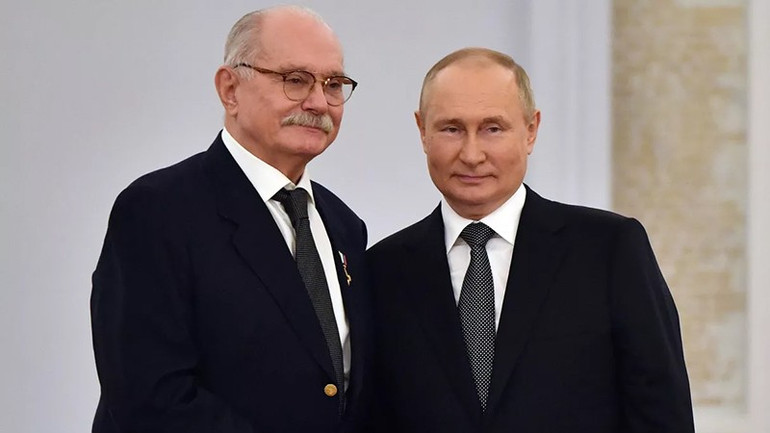
"As someone who has known him for many years, I can say that Nikita Mikhalkov is a man of extraordinary charisma and immense energy, with a great sense of humor! Nikita Sergeyevich is a truly passionate person. He has achieved and continues to achieve a lot in his life. He is one of those people for whom success is a character trait! Why? Because he is always busy, always active, and success, as we know, comes from action and will," said Mosfilm CEO and film director Karen Shakhnazarov in a congratulatory message to the great Russian artist on his 80th birthday.
Source: https://nhandan.vn/nikita-mikhalkov-nghe-si-dien-anh-tai-danh-cua-nuoc-nga-post918543.html


![[Photo] Prime Minister Pham Minh Chinh chaired a meeting to discuss solutions to overcome the consequences of floods in the central provinces.](https://vphoto.vietnam.vn/thumb/1200x675/vietnam/resource/IMAGE/2025/10/29/1761716305524_dsc-7735-jpg.webp)
![[Photo] Hue: Inside the kitchen that donates thousands of meals a day to people in flooded areas](https://vphoto.vietnam.vn/thumb/1200x675/vietnam/resource/IMAGE/2025/10/29/1761738508516_bepcomhue-jpg.webp)

![[Photo] Human love in the flood in Hue](https://vphoto.vietnam.vn/thumb/1200x675/vietnam/resource/IMAGE/2025/10/29/1761740905727_4125427122470875256-2-jpg.webp)
![[Photo] Prime Minister Pham Minh Chinh chaired a meeting to evaluate the operation of the two-level local government model.](https://vphoto.vietnam.vn/thumb/1200x675/vietnam/resource/IMAGE/2025/10/29/1761751710674_dsc-7999-jpg.webp)

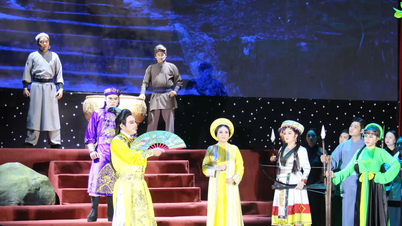
















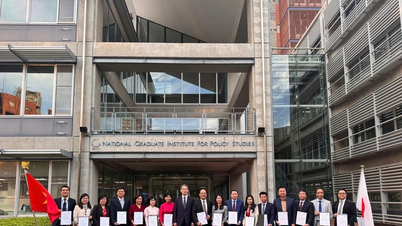
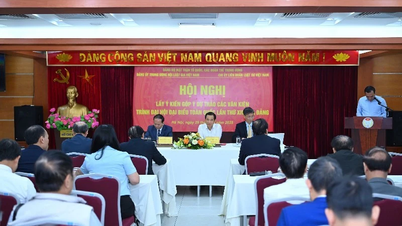









































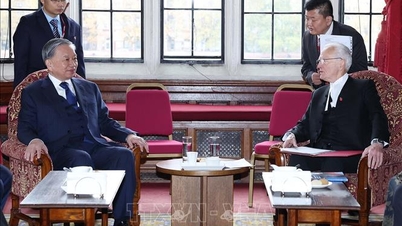



![[Live] Concert Ha Long 2025: "Heritage Spirit - Brightening the Future"](https://vphoto.vietnam.vn/thumb/402x226/vietnam/resource/IMAGE/2025/10/29/1761743605124_g-anh-sang-am-thanh-hoanh-trang-cua-chuong-trinh-mang-den-trai-nghiem-dang-nho-cho-du-khach-22450328-17617424836781829598445-93-0-733-1024-crop-1761742492749383512980.jpeg)





























Comment (0)